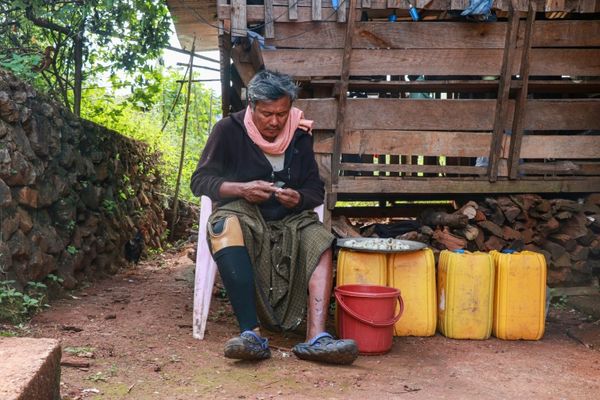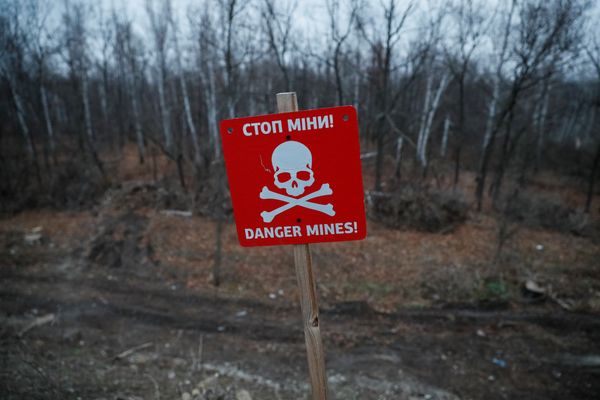The UK is seeing another rise in the number of people testing positive for coronavirus. The latest estimates suggest that around one in 25 people in England are infected with Covid-19.
The latest rise in infections is believed to be driven by two new subvariants of Omicron - BA.4 and BA.5, but experts say there is no evidence to suggest they lead to more severe symptoms than with previous variants. Together, the two new subvariants make up more than half of new Covid-19 cases in England.
The number of people in hospital with Covid-19 is also now on an upwards trend in most parts of the country. However, the vast majority of those infected experience only a mild illness and those who do not need hospital treatment are urged to stay at home and avoid contact with others until they feel better.
READ MORE:
But those suffering from Covid-19 may still feel unwell and will likely want to know what they can do to feel better quickly. While resting up and drinking lots of fluid is the best form of self-treatment, according to the NHS, your diet can also make a difference.
If you're infected with Covid-19, you may have lost your appetite and even your sense of taste. That can make it difficult to get excited about food - but it's important to try and eat a nutritious diet to help your body recover.
According to experts at the ZOE Health Study, people with Covid-19 should try and eat a diet high in protein. If full meals are too much for you, try to eat smaller proteinous snacks throughout the day.
The best foods to eat if you have Covid-19 include:
-
full-fat dairy products or plant-based alternatives
-
oily fish
-
eggs
-
tofu
-
legumes
-
nuts and seeds
These are all healthy options and will help to support your immune system in general and your overall health, according to the ZOE study.
It's also important to get enough vitamin C and zinc when fighting a respiratory illness like Covid. Vitamin C is found in citrus fruits such as oranges and in red and green peppers and strawberries. Zinc is in shellfish, meat and cheese.
People should limit their intake of alcoholic drinks, according to the World Health Organisation (WHO), while also avoiding sugary drinks and foods that are high in salt, sugar and fat.
Foods which commonly contain trans fats, such as processed and fried foods, should be avoided. The WHO says this includes things like doughnuts and baked goods – including biscuits, pie crusts, frozen pizzas, cookies, crackers and margarines that include partially hydrogenated fat.
If in doubt, the WHO says, minimally processed foods and ingredients are better choices. Wholegrains are recommended instead of refined foods.
Covid sufferers should remember to drink plenty of fluid. Your body loses a lot of water while fighting off an infection, particularly if you have a fever or if you experience diarrhoea and vomiting, experts said. It is best to drink water, but alternatives such as hot drinks, smoothies and full-fat milk drinks are also good.
It has also been suggested that people following vegan and pescatarian diets may be less likely to get severe Covid-19. One study has shown that people whose diets are plant-based and those who eat fish but not meat appear to have lower odds of getting a severe infection compared with others.
Low-carbohydrate, high-protein diets appeared to be linked to an increased chance of getting moderate to severe illness, though the findings were not statistically significant. The study, published in BMJ Nutrition, Prevention and Health, found that participants who reported they had a plant-based diet were 73 per cent less likely to report moderate to severe disease compared to those who did not follow one, while pescatarians had 59 per cent lower odds than people who followed other diets.
The authors, led by a team in the US, wrote: “In six countries, plant-based diets or pescatarian diets were associated with lower odds of moderate-to-severe Covid-19. These dietary patterns may be considered for protection against severe Covid-19."
READ NEXT:
- Ambulances queuing, 'extremely busy' A&Es, 'critical incident' declared: Pressure heats up on Greater Manchester's NHS
- Sudden death of pupil is second tragedy to rock secondary school this year
- 'There's nothing here anymore': The Greater Manchester town where boarded up shops blot the high street
- The average house price in every area of Greater Manchester as of July
- Absolutely brilliant’: Bury teacher praised for water bomb maths lesson during scorching hot day







